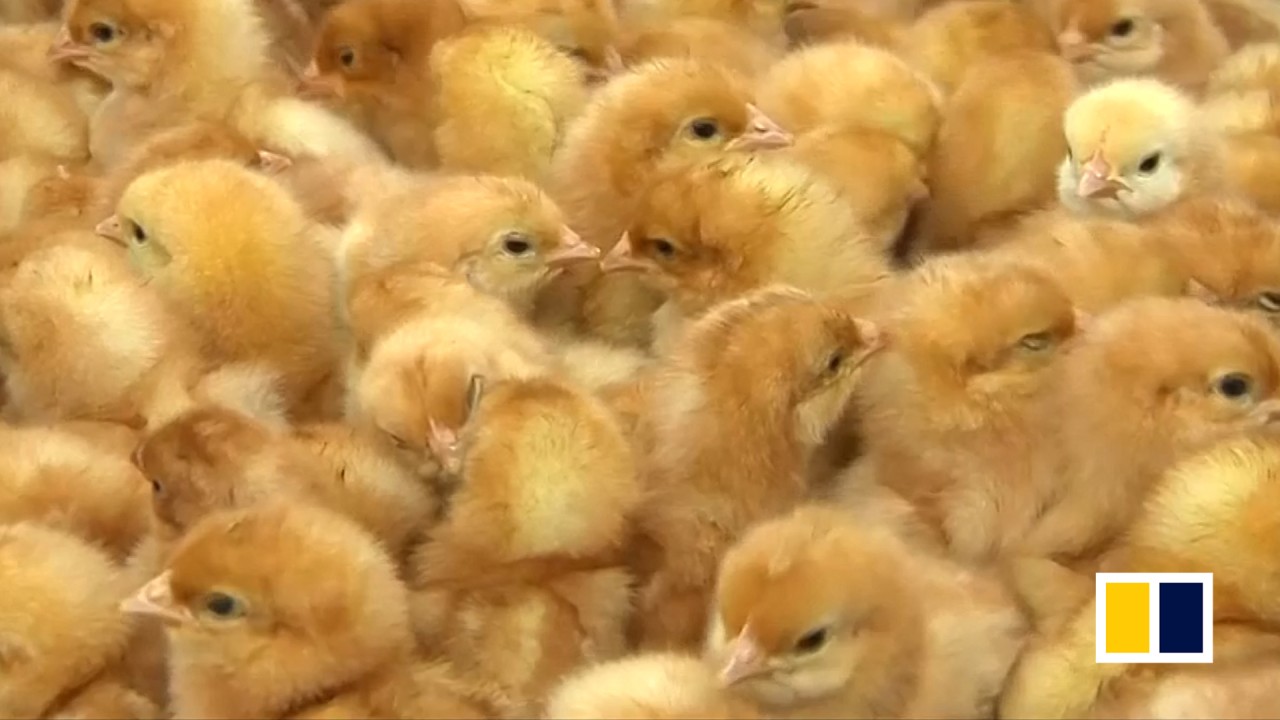
Behind China’s ‘mind power’ egg scandal, where academic ghostwriters quote US$400 to get bogus science published
- Writers advertising on e-commerce platforms say they can arrange for articles to be published in journals indexed on China’s largest research database
- No significant reduction of academic fraud in past 20 years, according to scholar who works to expose it
China’s for-profit academic publishing industry has drawn criticism again after a paper claimed chickens could be hatched from boiled eggs, but commentators say shady practices continue to thrive.
Their assertions are backed up by inquiries by the South China Morning Post that revealed how easy it is to find ghostwriters offering to produce a “scientific” paper and get it placed in an academic journal.

02:00
How China produces a billion eggs a day
According to Fang Shimin, a US-based scholar and commentator who has been exposing pseudoscience and fraud for 20 years, China has the world’s largest market for academic publishing, partly because many professions require publishing research papers as a job performance indicator.
He said that some of those lacking the ability to do research resorted to hiring essay ghostwriters and paying journals to publish fake essays.
“I was amused when I came across the boiled eggs essay, but not surprised,” Fang said. “I’ve seen many laughable essays previously.
“In the 20 years since I started working to expose academic fraud in China, there’s been no fundamental change.”
Forms of fabrication and plagiarism in academic publishing are getting more sophisticated, according to Fang. Before plagiarism detection software was developed, it was common to find entire sections of essays copied word for word, but now more subtle ways of cheating, such as using copied images, were increasingly common, he said.

01:23
Chinese father sets 2,000-sq-m lawn on fire after magnifying glass experiment goes wrong
The largest group of consumers for paid essay writing in China are medical doctors, who must publish papers as part of their job reviews. Rather than carry out real research, many paid someone to write their paper, Fang said.
In 2020, Dutch microbiologist and science integrity advocate Elisabeth Bik and other experts found more than 400 published scientific papers with potentially fabricated images that were suspected to have been produced by one paper mill in China.
The authors of the papers all seemed to be based at Chinese hospitals, with more than 100 of them listing Jilin First People’s Hospital as an affiliation, according to a blog post by Bik.
Essay-writing and publishing services are widely available in China. The Post found several listings offering them on Taobao, China’s largest e-commerce platform – owned by Alibaba, which also owns the South China Morning Post.
A vendor surnamed Li who offered themselves as a “doctorate and master’s pen for hire” said they could arrange a paper to be written and published in a journal indexed by CNKI, China’s largest research database.
“We can work on placing it in a suitable geology or geography journal, there’s no problem,” Li said in an exchange over WeChat. “When is the latest date you need it published?”
Li said writing an essay and publishing it in a CNKI-indexed journal would usually cost 2,500 to 3,000 yuan (US$388 to US$465). Submission to a geology journal recommended by Li would cost 3,000 yuan to write the essay and a further 3,000 yuan to pay “publishing fees” to the journal.
Accusations of questionable practices have reached the country’s top researchers and scientists. In 2019, Bik and her colleagues found what they believed to be manipulated images in papers by immunologist Cao Xuetao, former president of the Chinese Academy of Medical Sciences.
Will coronavirus kill off ‘dinosaur’ world of academic publishing?
After the allegations, the Ministry of Science and Technology began an investigation into Cao, now president of Nankai University, and other notable Chinese scientists.
In January, the ministry released a short summary of the investigation, giving few details and saying that there was no evidence of fabrication or plagiarism – but that the papers included misused images. Cao was barred from applying for grants and supervising student research for a year, the ministry said.
“It is astonishing that [the committee] concluded that no fraud had been committed in any of these cases,” scientific journal Nature quoted Bik as saying.
Some of Cao’s papers contained images with unnaturally repetitive elements, which Bik said no technical reason could explain. The images appeared to have been altered, according to the report.
Chinese authorities have introduced rules to punish academic misconduct and changes to performance reviews for researchers and academics.
The science ministry last year issued guidelines discouraging research institutions that received national funds from tying the number of academic papers published to the awarding of funding and bonuses to researchers.
It also said academic misconduct would result in loss of national funding, being added to a database tracking research integrity, or the researcher or institution having qualifications revoked for five years.
However, Fang said Cao’s treatment and the lack of information released suggested the authorities were covering up fraud.
“This is why academic fraud is rampant – there is no accountability,” Fang said. “Cao’s case was exposed by overseas experts. The investigation, which showed signs of a cover-up, has turned Chinese academia into an international laughing stock.”


